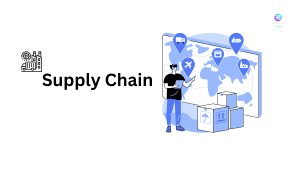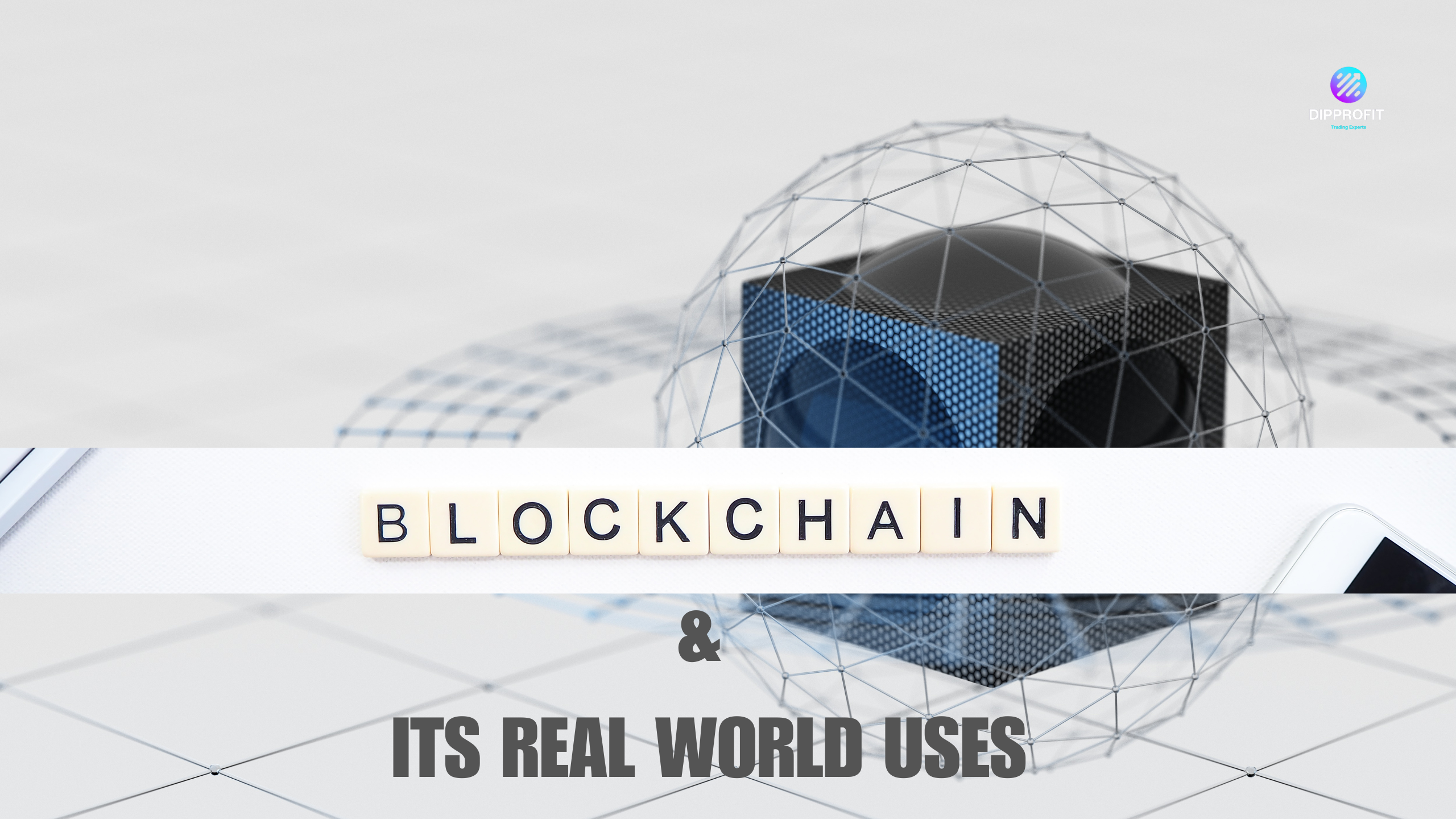

Blockchain technology has the potential to revolutionize the way we do business, and its implications have been felt in a variety of industries. From finance to healthcare, blockchain applications are being developed to streamline processes and make them more secure.
But what exactly are these applications and what real-world uses do they have?
In this article, we’ll explore the potential of blockchain applications and their real-world uses, from reducing fraud to improving data security.
What are the Top Real World Applications of Blockchain?
If you’ve been living under a rock (or maybe just avoiding the tech news), you might be wondering what all the fuss blockchain is about.
Well, let me tell you, blockchain is not just a buzzword – it’s a revolutionary technology that has the potential to transform industries as we know them.
But enough with the hype, let’s get down to business.
In this section, we’re going to explore some of the top real-world applications of blockchain.
From tracking tuna boxes to securing voting systems, you’ll be amazed at the creative ways people are using this technology to solve real-world problems.
So buckle up, strap on your space helmets, and let’s blast off into the world of blockchain!
Decentralized Finance
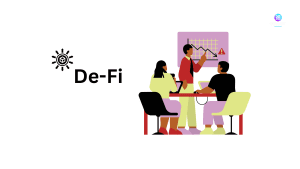
Blockchain technology has revolutionized the way we do business and manage financial transactions. One of the top applications of blockchain is decentralized finance (DeFi).
It is a decentralized, distributed ledger technology that enables secure and transparent transactions without the need for a central authority.
Decentralized Finance (DeFi) is a new way of managing financial activities that are built on blockchain technology. It allows users to access financial services such as lending, borrowing, and trading without relying on a third-party financial institution.
DeFi has become increasingly popular as it provides users with greater control over their own finances, more transparency, and faster transaction speeds.
Blockchain technology and decentralized finance are widely accepted as disruptive forces in the financial services sector.
Financial institutions are exploring the possibilities of applying blockchain technology to develop decentralized payment systems, securities trading platforms, distributed exchange platforms, or deposit schemes.
At the same time, venture capital firms and angel investors are developing new funding structures to finance innovative companies developing applications of blockchain technology, such as asset management companies, payment systems, decentralized exchanges, wallet services, and identity management.
See also: Why are NFTs so costly?
Healthcare

Blockchain technology has revolutionized the way we think about data storage and secure information sharing.
Its applications in the healthcare industry have been nothing short of remarkable, providing hospitals and medical practitioners with an efficient and secure platform to securely store and share patient data.
Healthcare organizations are now able to access and update patient data in real-time, allowing for more accurate diagnoses and treatment plans.
With blockchain technology, doctors, nurses, and other healthcare professionals can access patient records without having to manually input information.
This not only saves time and resources but also ensures that patient records are accurate and up-to-date.
The use of blockchain technology also reduces the risk of data breaches by providing a secure platform for patient data. It eliminates the need to constantly move records back and forth between various institutions, thus cutting down on bureaucracy.
The growing need for remote healthcare solutions has led to the adoption of blockchain technologies in the healthcare sector.
Several health-tech startups have already leveraged blockchain technology to improve efficiency and offer better service offerings to patients.
The benefits blockchain technology offers to health-tech firms that have patient data also drive the adoption of this technology in the healthcare sector.
However, the uncertain regulatory and legal frameworks in the healthcare industry and the high cost of implementation are the key challenges associated with the adoption of blockchain technology in the healthcare market.
Supply Chain Management
The world of technology has seen some incredible advancements in recent years, and one of the most promising technologies is blockchain.
Blockchain has the potential to revolutionize many industries and has been heralded as a revolutionary new way to store and share data.
One area where Blockchain is set to make a huge impact is supply chain management.
Supply chain management is an important part of any business and involves tracking goods from production to delivery. The current system relies on paper-based systems, which can be slow and prone to errors.
By using blockchain, businesses can reduce errors and delays, while improving transparency and traceability throughout the supply chain.
By using blockchain, businesses can track every step of a product’s journey. This includes the product being produced, from the point it is made to when it is delivered to the customer.
The idea is that all parties within the supply chain can see where a product is, what is happening to it, and who has it.
This increases the transparency and traceability of the supply chain. In addition, it enables businesses to improve their efficiency, and reduce costs.
See also: The Top Web3 Decentralized Applications in 2023 and how they work
Retail & Commerce

As the internet and digital technologies continue to evolve, so does the retail and e-commerce industry.
Retailers are now turning to new and innovative solutions to address their needs and improve customer satisfaction. One of the most exciting new solutions is the use of blockchain technology for retail and e-commerce applications.
Blockchain technology is an incorruptible digital ledger of economic transactions that can be programmed to record not just financial transactions but virtually anything of value.
It is a distributed, secure, and immutable system of recording data that can be used to create a wide range of applications in the retail and e-commerce space.
One such application is the use of blockchain technology to create smart contracts that can automate complex business processes, such as enabling the automatic payment of funds when a contract is completed.
The International Monetary Fund and The World Bank have endorsed the use of blockchain technology to carry out cross-border payments and bilateral trade settlements.
Data Security
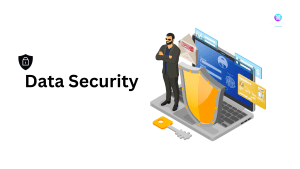
Blockchain is considered to be the most secure information management solution to secure data on distributed ledger platforms.
The security of blockchain technology lies in the fact that the digital ledger that can track, record, verify and exchange information is essentially a list of transactions that don’t change, unlike databases.
There are many applications of blockchain technology that can be explored from protecting physical records to filing income tax returns, authenticating products, verifying transactions, securing the ledger, and ensuring privacy.
Copyright and Royalties
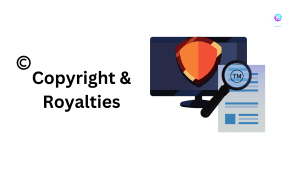
Blockchain has the potential to revolutionize the way copyrights and royalties are managed.
The use of blockchain technology for copyrights and royalties has the potential to streamline the process of tracking and managing these intellectual property rights.
With blockchain, copyright holders can register their work and timestamp it. This would create a permanent record of the work that could not be altered or deleted.
Copyright holders could then license their work using smart contracts. Also, blockchain technology could also be used to track the ownership and transfer of copyrights and royalties.
For example, when a recorded song is sold, the transaction could be recorded on the blockchain. This would create a transparent and immutable record of the sale and the use of blockchain could help to ensure that royalties are paid to the rightful copyright holders and not by illegal sites on the internet.
The implementation of blockchain technology for copyrights and royalties is still in its early stages.
However, the potential benefits of the technology are significant. Blockchain could help to simplify the process of managing copyrights and royalties and could provide greater transparency and security.
Conclusion
Blockchain is a relatively new technology that is still not used extensively across many sectors of the economy, although it is gradually gaining ground.
It may develop into a potent instrument for the decentralization of data as it becomes more widely used, promoting transparency and moral corporate practices.
Decentralization in finance is being facilitated by blockchain. Through smart contracts, users may safely lend money to one another and trade crypto tokens on decentralized exchanges directly with one another.
